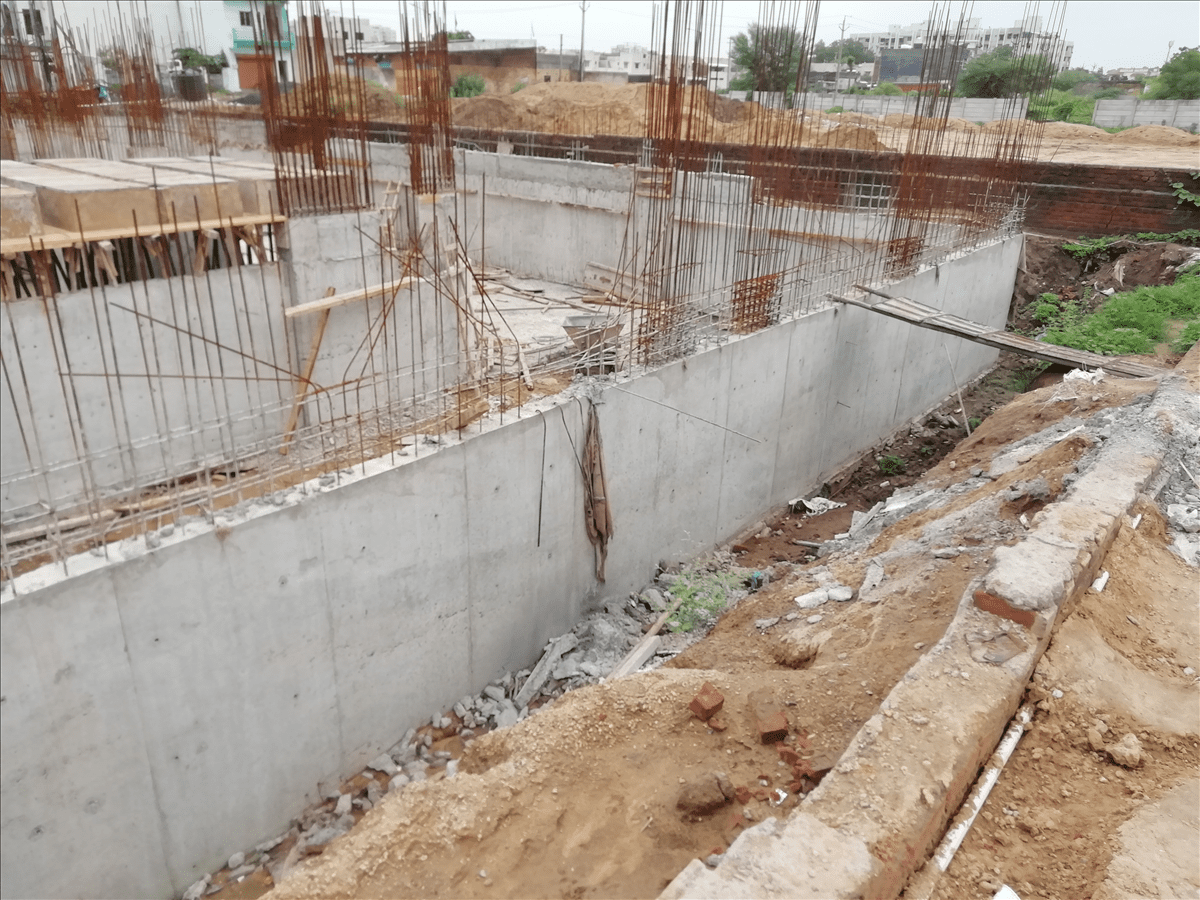Talk To Our Experts And Get a Free Estimate for Your Dream Home
- 9825585997 / 8866903438
- info@waterseal.in
Importance of Basement Waterproofing in New Construction
Basement waterproofing is crucial during new construction, especially for protecting your basement walls from future water damage.
Ensuring proper basement waterproofing at the construction stage helps safeguard your building’s foundation and prevents long-term seepage issues.
Long-Term Benefits of Basement Wall Waterproofing
Effective waterproofing solutions can stop water leaks early and increase the durability of your basement. Waterseal takes proactive steps to ensure long-lasting waterproofing.
With basement waterproofing in place, you gain peace of mind knowing your space is protected from moisture, cracks, and structural damage.
Why Choose Waterseal for Basement Waterproofing
Waterseal provides high-quality basement waterproofing services to keep your foundation strong and dry.
To understand our method in detail, explore our step-by-step basement waterproofing guide in the post below.
It often begins with small signs — a damp basement floor, a wet patch on the foundation wall, or a persistent musty smell that only occurs in the basement. These are clear indicators of moisture buildup, often caused by hidden leaks or poor waterproofing. That musty odor usually comes from mold, which thrives in moisture-prone spaces like basements.
Waterseal offers expert basement waterproofing services across Gujarat. Our solutions are designed to eliminate moisture from its root cause and prevent recurring water damage.
One of our specialized services is foundation wall waterproofing for sunken areas. A leaking basement shouldn't be fixed only where water is visible — the issue must be solved at the source. With over 29 years of experience in residential and commercial waterproofing, we first inspect and evaluate the site, determine the right solution, and then implement a complete waterproofing system. This includes both internal waterproofing and exterior solutions to relieve hydrostatic water pressure.
Our basement waterproofing approach is tailored to customer needs and offers long-lasting protection at affordable prices.

Waterseal follows a methodical approach to ensure long-lasting and reliable basement waterproofing. Each step is designed to eliminate existing seepage and prevent future water intrusion during and after new construction.
1. Assessment and Inspection
Waterseal begins by thoroughly inspecting the current condition of the basement walls. This includes checking for visible cracks, mold fitting holes, rod gaps, and construction joints where water intrusion is likely to occur.
2. Surface Preparation
Before any waterproofing chemical is applied, the basement walls are cleaned and prepared. All loose materials such as cement residue, wires, nails, and rod pieces are removed to ensure proper adhesion of the waterproofing layers.
3. Grouting Work and Joint Sealing
We perform grouting using a non-toxic hydraulic cement mix that seals small cracks and holes effectively. To reinforce each grouted joint and mold fitting, PPC Mat is applied for added strength and leakage resistance.
4. Concrete Slab at Wall Base
A strong cement concrete slab is constructed at the base of the exterior walls by clearing debris around the foundation. This helps reduce water accumulation near the basement and provides extra protection to the wall base.
5. Application of Waterproofing Coating
We apply Waterseal PSV waterproofing chemical on both the internal and external sides of the basement walls. A minimum of 3 to 4 coats is applied for optimum protection.
To learn how to mix the waterproofing chemicals correctly, read our step-by-step chemical mixing guide.
1. Proper drainage system: Ensuring proper drainage around the foundation is important for basement waterproofing. The soil around the wall of the house should be compacted. Using good quality pipes in the surrounding Drainage lines and waterproofing the sewer chambers also prevents future leakage.
2. Strong Flooring: For durable basement flooring, one option is to first use strong plaster to prevent water from seeping in. Then, you can place blocks, stones, or tiles on top to further protect the foundation from outside moisture.
3. Regular maintenance: It is highly recommended to perform regular maintenance after waterproofing has been completed. This includes checking for any new cracks in the surrounding flooring, ensuring the drainage system is working properly, and immediately repairing any signs of water leakage to prevent water damage to the building.
Please note that the specific methods and products used by Waterseal might differ from these general steps. If you're interested in Waterseal's techniques and approaches, I recommend reaching out to them directly or checking their official website for detailed information.
